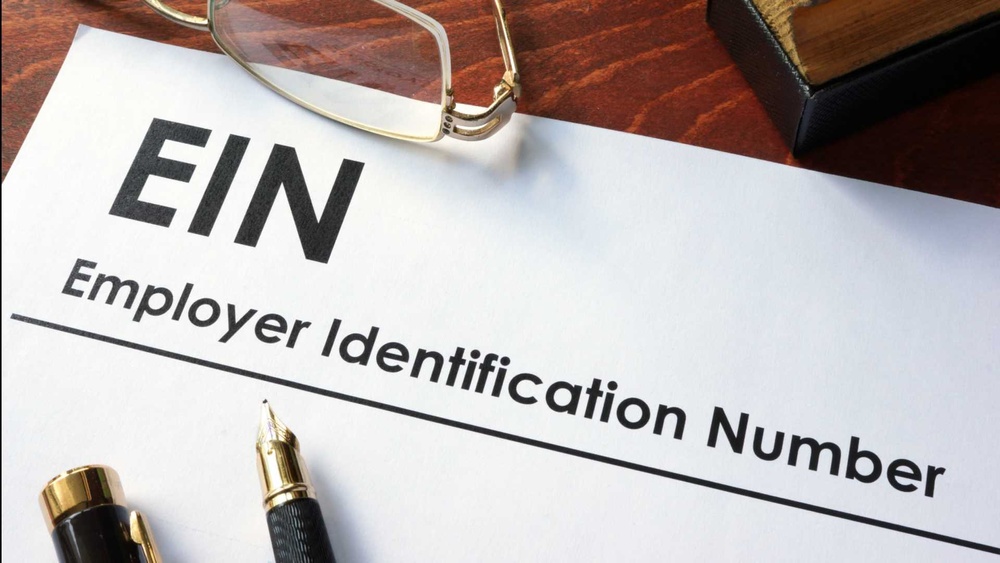The Startups Team

What is an EIN?
EIN stands for “employee identification number” and it’s the number assigned to your startup for tax purposes. Think of it like your company’s social security number. The EIN is also known as a Federal Tax Identification Number.
The EIN is nine digits in this format: XX-XXXXXXX.
Does my business need an EIN?
Most businesses do need an EIN — they’re necessary for filing taxes and for payroll. EINs are needed by employers, sole proprietors, corporations, partnerships, non-profit associations, trusts, estates of decedents, government agencies, some individuals, and some business entities. Some businesses are exempt from having an EIN, but may choose to get one anyway as having an EIN can make certain government processes simpler.
The IRS websites says that your business needs an EIN if you have employees; are incorporated or are a partnership; file Employment, Excise, or Alcohol, Tobacco, and Firearms taxes; withhold taxes on income, other than wages, paid to a non-resident alien; have a Keogh plan; or are involved with any of the following agencies:
- Trusts, except certain grantor-owned revocable trusts, IRAs, Exempt Organization Business Income Tax Returns
- Estates
- Real estate mortgage investment conduits
- Non-profit organizations
- Farmers' cooperatives
- Plan administrators
How to apply for an EIN
The process to apply for an EIN is super simple — and it’s free. There are sites online that will try to charge you to apply for an EIN, but don’t fall for their tricks. You can do it all on your own through the IRS website. The application is available Monday through Friday from 7 a.m. to 10 p.m. ET, however, so make sure to do sign in during those hours.
The best and easiest way to apply for an EIN is online. Your company must be located within the United States or US Territories and the principal officer, general partner, grantor, owner, trustor etc. must have a valid Taxpayer Identification Number (like a social security number or Individual Taxpayer Identification Number) in order to use the online application. Once you complete the application, it’s verified and issued immediately.
You can also apply by fax, snail mail, or — if you live abroad — over the phone. If you want info on how to apply those ways, check out the IRS site. (But also, it’s 2019, so just apply via the website.)
Before you go to apply, however, make sure you have all of your documents ready to go, as you won’t be able to sign out of the application and sign back in again without losing your work. You can review this PDF of the SS-4 application form to make sure you have all of the necessary information before you log in.
Here’s everything that form asks for:
- Legal name of entity (or individual) for whom the EIN is being requested
- Trade name of business
- Executor, administrator, trustee, “care of” name
- Mailing address
- Street address (if different)
- County and state where principal business is located
- Name of responsible party
- SSN, ITIN, or EIN
- Type of business entity
- Reason for applying
- Date business started or acquired
- Closing month of accounting year
- Highest number of employees expected in the next 12 months
- First date wages or annuities were paid
- Principal activity of your business.
- Principal line of merchandise sold, specific construction work done, products produced, or services provided
- Whether or not you’ve ever applied for and received an EIN
How to look up your EIN
If you forgot or lost your EIN, you have a couple different options for looking it up. First, check your old tax returns — it’s definitely on there. But if you don’t have tax returns or you can’t track them down, see if a bank where you’ve opened an account or a state agency where you’ve gotten a license can give it to you.
And if none of that works, you can call the Business & Specialty Tax Line of the IRS at 800-829-4933. They’re open from 7:00 a.m. to 7:00 p.m. ET, Monday through Friday. An assister will ask you for identifying information and provide the number to you over the telephone, as long as you are a person who is authorized to receive it. Examples of an authorized person include, but are not limited to, a sole proprietor, a partner in a partnership, a corporate officer, a trustee of a trust, or an executor of an estate.
How to make changes to your EIN
Sometimes, businesses change — and certain changes need to be associated with your EIN. If your business name changes, for example, in some situations you can just tell the IRS but in others you have to apply for a new EIN.
Changing the name of your business
Sole proprietorship: Write to the IRS at the address where you filed your return, informing them of the name change. The notification must be signed by the business owner or authorized representative.
Corporation: If you are filing a current year return, mark the appropriate name change box of the Form 1120 type you are using. It will either be “Form 1120: Page 1, Line E, Box 3” or “Form 1120S: Page 1, Line H, Box 2.” If you have already filed your return for the current year, write to the IRS at the address where you filed your return to inform us of the name change. The notification must be signed by a corporate officer.
Partnership: If you are filing a current year Form 1065, mark the appropriate name change box on the form: Page 1, Line G, Box 3. If you have already filed your return for the current year, write to the IRS at the address where you filed your return to inform us of the name change. The notification must be signed by a partner of the business.
Changing the address of your business
If the address associated with your EIN changes, you have to let the IRS know because all information associated with your EIN must be up to date at all times. To change your entity’s mailing or business location address with the IRS, fill outForm 8822-B, Change of Address - Business. Mail the completed form to the IRS.
How to cancel your EIN
You can’t actually cancel your EIN. Once it’s assigned to your business, it’s assigned to your business forever. It will never be assigned to another business.
You can, however, close your business account with the IRS. In order to do that, send the IRS a letter that includes the complete legal name of the entity, the EIN, the business address, and the reason you wish to close your account. If you have a copy of the EIN Assignment Notice that was issued when your EIN was assigned, include that as well. You can send all of that information to:
Internal Revenue Service
Cincinnati, Ohio 45999
EIN vs. other types of government ID numbers
EIN vs. ED
EIN vs. FEIN
FEIN stands for federal employer identification number. It’s another name for an EIN.
EIN vs. SSN
SSN is a social security number and it’s the tax identification number for individuals, whereas the EIN is for the tax identification number for businesses.
EIN vs. Tax ID
A tax ID is a number assigned by the IRS for tax purposes. An EIN is a type of tax ID, specifically for businesses.
EIN vs. ITIN
ITIN stands for individual taxpayer identification number and it’s like a social security number, but for certain non-U.S. residents and resident aliens and their spouses and dependents who are not able to obtain a social security number (SSN). Therefore it’s for an individual, whereas an EIN is for a business.
Find this article helpful?
This is just a small sample! Register to unlock our in-depth courses, hundreds of video courses, and a library of playbooks and articles to grow your startup fast. Let us Let us show you!
Submission confirms agreement to our Terms of Service and Privacy Policy.
Already a member? Login
No comments yet.
Start a Membership to join the discussion.
Already a member? Login
